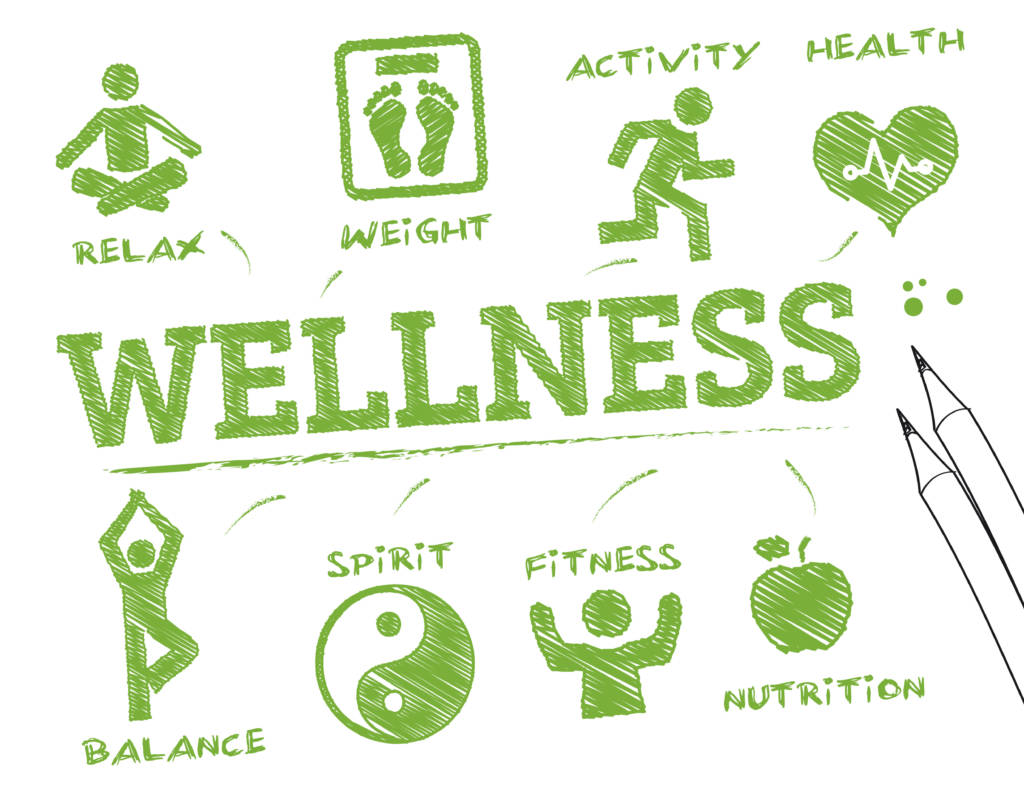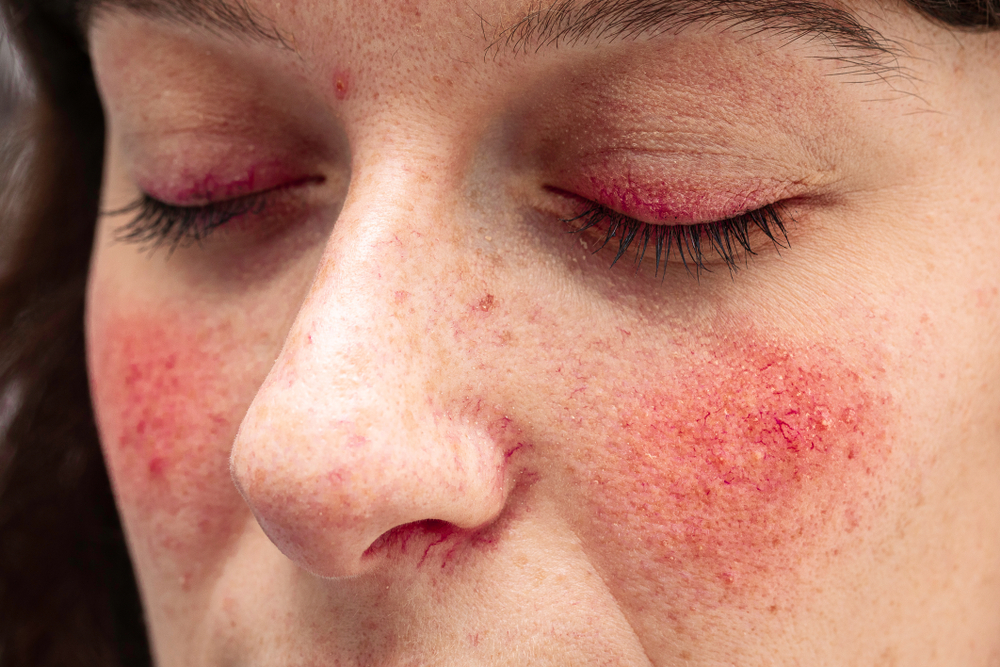What is rosacea?
Rosacea is a common skin condition, usually occurring on the face, which predominantly affects fair-skinned but may affect all skin types in people aged 40 to 60 years old. It is more common in women but when affecting men, it may be more severe. It is a chronic condition, and can persist for a long time and, in any individual, the severity tends to fluctuate. Rosacea tends to affect the cheeks, forehead, chin and nose, and is characterised by persistent redness caused by dilated blood vessels, small bumps and pus-filled spots similar to acne. There may also be uncomfortable inflammation of the surface of the eyes, eyelids and nose.
What causes rosacea?
The cause of rosacea is not fully understood. Rosacea does seem to run in some families, but there is no clear genetic link. Although these factors may influence susceptivity to this skin condition:
- Your genetics
- Immune system factors
- Environmental factors
Factors that trigger rosacea cause the blood vessels in the skin of the face to enlarge (dilate).
The theory that rosacea is due to bacteria on the skin or in the gut has not been proven. However, antibiotics have proven helpful to treat rosacea. There are a variety of triggers that may make rosacea worse. These include alcohol, exercise, high and low temperatures, hot drinks, spicy foods and stress. Rosacea can be sun sensitive.
What are the symptoms of rosacea?
The rash and the blushing associated with rosacea can lead to embarrassment, lowered self-esteem and self-confidence, anxiety and even depression. The skin of the face is often sensitive, and the affected area can feel very hot or sting. Whilst also some people with rosacea may develop eye symptoms. With a few patients with rosacea developing more serious eye problems, such as painful inflammation involving the front part of the eye (rosacea keratitis) and this may cause blurred vision. It is important that you consult a dermatologist or an optician if you develop symptoms affecting the eyes.
What does rosacea look like?
Rosacea usually starts with a tendency to blush easily. After a while, the central areas of the face become a permanent deeper shade of red, with small, dilated blood vessels, bumps and pus-filled spots. Occasionally, there may be some swelling of the facial skin (lymphoedema), especially around the eyes. Occasionally, an overgrowth of the oil-secreting glands on the nose may cause the nose to become enlarged, bulbous and red (called rhinophyma). Rhinophyma is more common in men than women.
How will rosacea be treated?
The inflammation that accompanies rosacea can be treated with preparations applied to the skin or taken by mouth; however, not all these will help the redness or blushing that may be associated with rosacea.
- Forms of treatment include:
- Local applications
- Antibiotics
- Laser therapy for redness and dilated blood vessels
- Beta blocker / clonidine for blushing or Roaccutane
What Can you Do?
Protect your skin from the sun by using a sun block (with a sun protection factor of at least 30) on your face every day and needs re-applying frequently if outdoors. The heat from the sun may aggravate the condition. Try to not rub or scrub your face when cleansing as this can make rosacea worse. Do not use perfumed soap as this can make rosacea worse. Try using an unperfumed moisturiser or natural skin care product without harsh chemicals on a regular basis if your skin is dry or sensitive.
Wellness Advice

Food sensitivities commonly trigger flare ups of skin conditions such as acne rosacea. Try to consider the lifestyle factors that can worsen rosacea and avoid them; a written record of your flare-ups may also help to target triggers. Doing this may also target food sensitivities which can commonly trigger flare ups of skin conditions such as acne rosacea. Also support your stress as patients with acne rosacea often report flare ups during stressful times
Other areas to consider
Try to eat more oily fish as Omega-3 fatty acids modulate the production of inflammatory compounds. They also help to support healthy immune signalling and strong supple skin. Whilst also supporting the healthy flora of your gut. Probiotics may enhance digestion, which can be a problem for many who suffer with skin conditions. Consider visiting a health care professional such as a Nutritional Therapist to discuss your condition and bespoke treatment advice.
Summary
- Rosacea is a common skin condition, usually occurring on the face, which predominantly affects fair-skinned but may affect all skin types in people aged 40 to 60 years old.
- Rosacea tends to affect the cheeks, forehead, chin and nose, and is characterised by persistent redness caused by dilated blood vessels, small bumps and pus-filled spots similar to acne.
- Your genetics, immune system factors, and environmental factors may all play a part.
- Rosacea usually starts with a tendency to blush easily. After a while, the central areas of the face become a permanent deeper shade of red, with small, dilated blood vessels, bumps and pus-filled spots.
- Protect your skin from the sun, not using harsh chemicals and targeting triggers can all help support the condition.
- Support Stress: Patients with acne rosacea often report flare ups during stressful times
Thank you for reading. Please do not make any changes to the way you eat before consulting a trained health care professional.
Fiona Waring
Dip Nut, BSc.(Hons), MSc PHN, ANutr
Nutritional Therapist
M: +44 07957 267 964
eatyourgreens@fionawaring.com
‘Registered with the Association for Nutrition – www.associationfornutrition.org
Protecting the public and promoting high standards in evidence-based science and professional practice of nutrition.’
